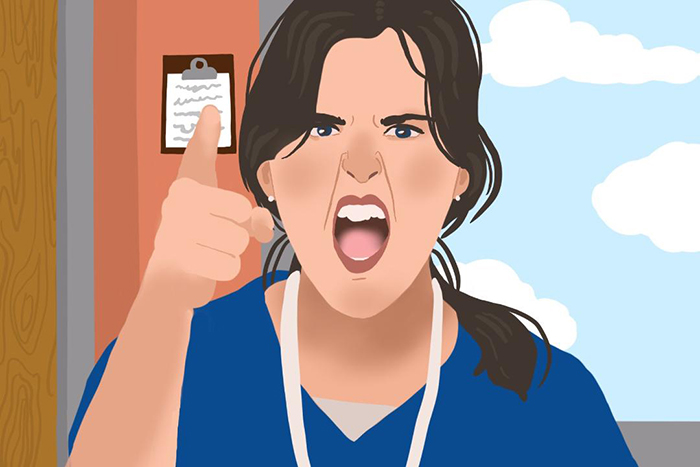Healthy Workforce
The Profanity Problem
When your seasoned nurses' language is a little too salty

You’re the charge nurse on a busy labor & delivery unit. Although you like your role, you cringe any time Sandra is working. Sandra is quick to anger if she doesn’t like her assignment, and when she gets angry, she lets loose with a choice string of words you can’t say on TV.
Although you try to give her “good” assignments, today is a challenging day with many difficult patients, and Sandra doesn’t like it one bit. As you’re standing in the middle of the nurses’ station, she loudly declares, “I’m not taking this f***ing assignment!!” and stomps off down the hallway.
You wouldn’t expect nurses to use such vulgar language while on the job, but they do. In fact, profanity in the workplace is one of the most common complaints we hear from our healthcare clients at the Healthy Workforce Institute.
EVERYONE DOES IT!
In organizations we work with, we’re told that both clinical and nonclinical staff curse on the job — some of them like sailors! Sometimes, the very same leaders who complain about their employees’ potty mouths also admit (reluctantly) that they swear too.
One of the medical directors we work with admitted that any time she gets frustrated, she’ll drop a “m*****f***” (fill in the blanks) right in front of her team. She’s apparently well-known among her staff for blurting out “What the f***?” any time something doesn’t go quite right.
The medical director’s profanity isn’t directed at anyone else — it’s a reflexive stress response that’s expressed in a barrage of “bleeps.” However, some examples are more personal.
In one case, a new nurse asked an experienced coworker for the pharmacy phone number. The coworker snapped, “It’s 1-800-GO-F***-yourself, honey,” and then laughed.












